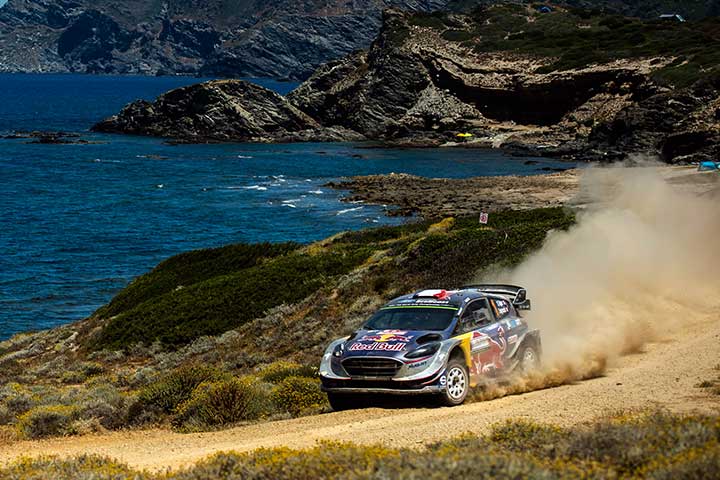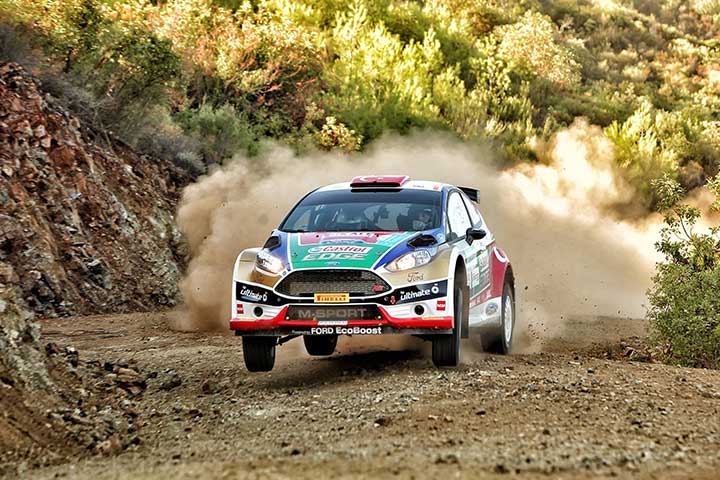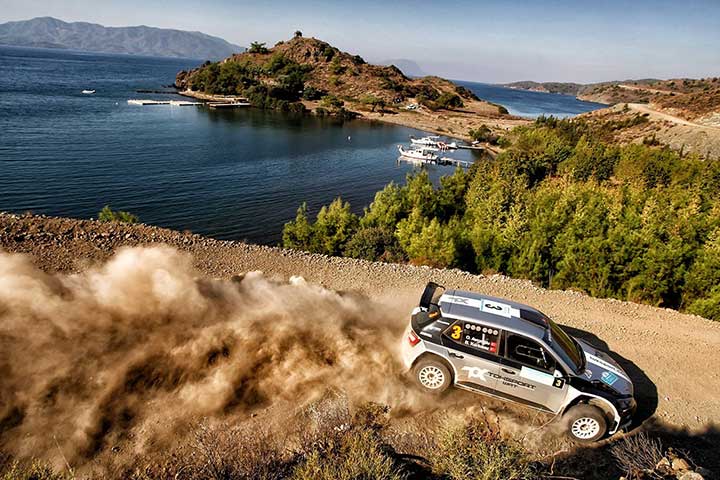The encyclopedias tell us that in 1771 a French military engineer by the name of Cugnot invented the first horseless carriage. His steam-driven gun tractor, the ancestor of the automobile, can still be seen at the Conservatoire National des Arts et Metiers in Paris. The first car driven by an internal combustion engine was built by Delamere-Deboutteville in 1883, but not until 1887 was the first commercially viable car produced. Daimler led the way with his two horsepower car, followed by Peugeot and then by De Dion and Bouton’s Renault. Car racing dates from those early days of the car manufacturer, as producers set about demonstrating the superiority of their own designs by organizing small races amongst themselves with no set rules. Seven years later, on 22 July 1894, the world’s first public motor rally took place between Paris and Rouen, sponsored by La Petit Journal newspaper. In 1904 the International Automobile Federation (FIA) was established in France for the purpose of laying down specific regulations for car races and rallies.
The Federation recognized one club or association as the representative of each country, and in this way car racing according to standard regulations spread around the world. Turkey’s regulatory body was originally the Turkish Touring and Automobile Association (TTOK), which was succeeded by the Turkish Federation of Automobile and Motor Sports when it was established in 1991. Turkey’s first unofficial car race was held in Gülhane Park behind Topkapi Palace in Istanbul in the early 1920s. In 1927 the Istanbul Automobile Society organized a 15-lap race on Veliefendi Meadow. In 1931 the Turkish Touring and Automobile Association organized an uphill race from Istinye on the Bosphorus to Maslak, sponsored by Ali Naci Karacan, in which motorcycles raced first, followed by cars. This was the first race organized by the association and continued to be held until 1934 when it was stopped on account of an accident involving Samiye Burhan Cahit Hanim one of Turkey’s, and indeed Europe’s, first women drivers.

In 1937, the First Balkan Rally organized by the Greek Automobile Club was held incorporation with the Turkish Touring and Automobile Association. Chairman of the Turkish Committee was the famous sportsman Ali Sami Yen. With the intervention of the Second World War, motor rallying in Turkey temporarily ceased, not recommencing until 1953, when TTOK organized the first Automobile Endurance Race. This rally, covering a course of 2500 kilometers, was designed by Ali Sipahi and was repeated once the following year. Towards the end of the 1950s, Turkish drivers began to participate in international competitions abroad. In 1971 the Aegean Rally was granted international status by the FIA, but it was the Günaydin Türkiye Rally, launched in 1972, that is regarded as the turning point in Turkish motorsports history. Only cars manufactured in Turkey were eligible to compete, and as well as the Anadol produced by Otosan, the Murat and Renault manufacturers participated with their own factory teams. In 1977 foreign cars also began to compete in this event In 1978 the Balkan Rally Championship and in 1983 the European Rally Championship were held in Turkey.

In the 1980s, when cigarette companies emerged as the main sponsors of car rallies, Turkish drivers won a series of international events. In 1984 Renc Kocibey and Can Unlu, and in 1985 Kalevi Aho became Balkan champions. Other Turkish drivers who achieved international success were Serdar Bostanci, Ali Bacioglu, Iskender Atakan, Ali Deveci, Nejat Avci and Ercan Kazaz. In 1999 Volkan Isik, a member of Team Atakan, which was established by Iskender Atakan and sponsored by a cigarette firm, came second in the FIA Teams Cup, part of the World Rally Championship, and in 2000 Serkan Yazici of the same team came third in the same cup. From an average of 35 to 40 teams participating in the Turkish Rally Championship events in 1998 and 1999, numbers soared to 80 to 85 in 2000, and this, coupled with international successes, attracted rising public interest in the sport. Some drivers became so popular that fan clubs were established. The FIA proposed that the Turkish Automobile and Motor Sports Federation organize a rally as a candidate for membership of the World Championship. The Turkish Rally was held in 2000 under the close inspection of the FIA and given first standby status, which means that if any leg of this year’s World Championship should be canceled, it will be held in Turkey instead.

Here is an updated list of results between 1972 – 2017: https://www.ewrc-results.com/events/2126-gunaydin-bosphorus-rally/
Now, in Marmaris again, Turkey will be hosting the 10th leg of the World Rally Championship (WRC) in between 13th September – 16th September 2018
After football, motorsports enjoy the largest number of spectators around the world, and so long as powerful sponsors remain with the sport, rallying will continue to prosper in Turkey and events held here to attract international interest.
If you are planning to join this event; enjoying a private blue cruise in Marmaris is also a great idea to extend your holiday and we will be happy to book you the best available options for such a lifetime experience.

